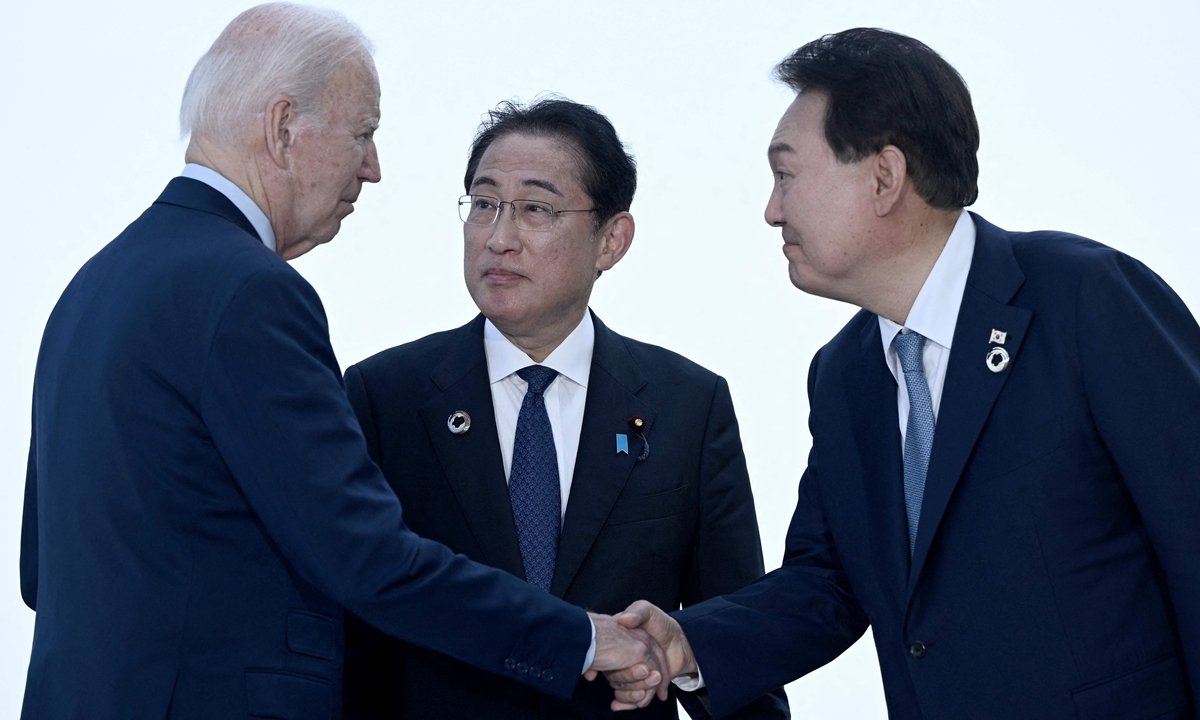The tri-country summit involving the US, Japan, and South Korea, set for August 18 at Camp David, appears to be steering global politics towards what many are dubbing the “new cold war.” This development has profound implications, not just for Northeast Asia, but for global geopolitics.
Historically, the Korean Peninsula has been entangled in Cold War remnants. That these unresolved issues continue to linger makes South Korea’s role in fostering this “new cold war” narrative even more intriguing. Observers suggest that there’s more to this than meets the eye – there might be covert influences, particularly from across the Pacific.
From the pre-summit information available, the upcoming summit appears to be branded under the guise of ensuring “shared security.” The agenda seems to aim at creating a fresh security alliance. This alliance seems to emphasize ideological differences and values, showcasing a clear trend toward exclusivity, competition, and polarization. The cooperation extends across various spheres – political, military, economic, and technological. The aftermath? An overt division in the Asia-Pacific region, compelling nations to take a stand.
Washington’s role in the lead-up to this summit is undeniable. Their proactive involvement, characterized by the selective release of summit-related information, is conspicuous. The motivation behind this seems to stem from apprehensions regarding South Korea’s unilateral diplomatic overtures towards Japan. Washington views the current geopolitical landscape as a golden “opportunity.” It aims to solidify this cooperative framework swiftly, thus making it challenging for future leaderships to deviate.
Here’s a call to South Korea: tread carefully. Their current positioning is central to the rising “new cold war” sentiments in the region. There’s a growing skepticism about whether the South Korean administration truly grasps the quagmire they are entering. If they did, their reception of the “Camp David summit” invite wouldn’t resemble an overzealous child receiving a reward. Instead, they’d approach this with the caution of someone navigating treacherous terrains.
South Korea’s interpretation of the regional and global situation, when juxtaposed with that of the US and Japan, seems uncharacteristically aggressive and elementary. Such a perspective, many believe, is ill-suited for the intricate geopolitics of Northeast Asia. Despite bearing the brunt of Cold War remnants, South Korea’s current alignment with these “new cold war” undercurrents is baffling. How could a nation, once so affected by the Cold War, willingly join forces that may ignite another?
Recent narratives from South Korean media underscore this sentiment. They suggest that the Yoon Suk-yeol administration is perilously close to being engulfed by the “new cold war” vortex. Such a trajectory could obliterate the socio-economic progress South Korea has made over decades. Historically, South Korea adeptly maintained diplomatic equilibrium amidst geopolitical stresses, resulting in remarkable socio-economic advancements. But, the harmony now seems threatened both internally by the Yoon administration and externally by Washington and Japan.
Why the focus on South Korea over the US and Japan? The belief is that while the US and Japan might be entrenched in their stances, South Korea, with rational thought, can pivot. Their stance doesn’t merely influence their nation but impacts the Korean Peninsula and Northeast Asia at large. By resisting the “new cold war” narrative, South Korea could play a pivotal role. Both China and South Korea share mutual goals regarding the Korean Peninsula’s peace, stability, and denuclearization.
At the core of the “Camp David summit” is the so-called “North Korean threat.” All parties involved have played down any potential targeting of China. Rumors suggest South Korea’s reluctance to label China as a competitor or threat, potentially pitting them against one another. If accurate, it implies that South Korea remains perceptive. However, the anticipated deepening of military ties between the US, Japan, and South Korea, set to be a focal point of the summit, leaves little room for doubt about its target.
Historically, the US maintained bilateral alliances with Japan and South Korea. Now, under the US’s orchestration, there seems to be a shift towards a trilateral alliance, particularly in military cooperation, often termed the “mini NATO” of the Asia-Pacific. This development underscores the US’s intentions in shaping the “new cold war” paradigm. The severity of the potential fallout from this cannot be overstated. The world must be vigilant and proactive in countering this “new cold war” narrative.
Read More:
